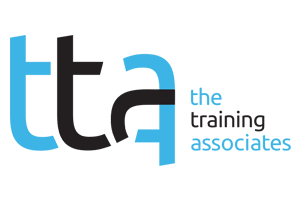Gen Z is growing up. Having been replaced by Gen Alpha as the youngest generation, many members of Gen Z — or those born between the late 90s and early 2010s — are graduating from college and trading their final exams for 401(k)s. In fact, data suggests that by 2025, Gen Z will make up around 27% of the professional workforce, according to the World Economic Forum.
In many professions, including internal audit, this trend is of particular importance. Technology is evolving incredibly fast, giving rise to opportunities and new potential risks related to artificial intelligence (AI), cybersecurity, data analytics and more. In light of this, Gen Z graduates, who tend to have a deeper familiarity and confidence with technological change, make for especially promising additions to the workforce.
To successfully onboard Gen Z graduates, hiring managers must recognize that effective onboarding starts well before the new recruit’s first day. More organizations today are placing a value on candidates who have pre-professional education, including industry focused in-class courses and programs, and hands-on experiences such as internships, and we’re seeing that play out across the internal audit profession. According to our recent Student Talent Pipeline Report, among respondents who offer internships, 74% said that their internships are designed to encourage future employment within the internal audit function — a strategy that is likely to pay off as the importance of on-the-job experience becomes more of a priority.
Contributing to Pre-Professional Education
A 2023 study by the online education magazine Intelligent.com found that around 40% of business leaders feel that Gen Z graduates are unprepared to enter the workforce, signalling a disconnect between what students are learning in the classroom and what is expected from them in the workplace.
This can be a significant opportunity for hiring managers and employers to give students a stronger sense of the on-the-job experience before they enter the workforce. One way they can do this is by getting more involved with academic institutions and educational programs, which may include guest lecturing in classes or participating in other pre-professional programs to provide students with a better idea of the skills and experiences required for a successful career in their field of study.
Another way that organizations can ensure young workers gain traction early in their careers is by providing formal learning resources and incorporating a path to proper certifications. The IIA offers free student memberships, which give students access to a variety of professional and personal development resources along with networking and internship opportunities. We also have a number of CPE courses online to help members gain a deeper understanding of the internal audit landscape and progress in their journey to becoming an internal audit professional. Many professions offer similar opportunities that hiring managers and professional development staff should explore as part of a holistic onboarding plan.
Encouraging Industry Experience
There is only so much that can be learned in the classroom, so it is imperative that employers embrace their role in providing opportunities for prospective graduates and young professionals to gain firsthand experience in the workforce. The Pipeline report also underscores prior experience as an influential factor for internal audit employers when considering job candidates, a priority that extends across other industries, according to the National Association of Colleges and Employers.
Providing more internship opportunities to recent graduates can not only increase the graduate talent pool for hiring managers but will also ensure new employees have a deeper understanding of the skills and responsibilities expected of them in their new role. These opportunities can serve as a valuable way for seasoned industry professionals to provide mentorship to young employees that can help guide them throughout their careers.
Proper Training and Certifications
Many industries require certifications or licensure for professionals to advance past a certain point in their careers. By providing students and recent graduates with opportunities to earn certifications, employers have an opportunity to not only ensure new hires are well-qualified, but also play a valuable role in the training process.
The IIA offers resources such as the Internal Audit Practitioner program to help prospective internal auditors gain their CIA, or Certified Internal Auditor, certification. Training and certifications such as the CIA are an integral part of ensuring that young or new internal audit professionals are well-equipped to start their careers and helps facilitate their onboarding process to existing internal audit teams.
Create a Supportive Culture
For many young professionals and recent graduates, starting a new job for the first time can be intimidating. Instilling a support system by way of a “mentor” or “career manager” as part of the onboarding process can help foster a culture of inclusion and empowerment where junior talent feels comfortable asking questions and voicing their opinions, both essential components of helping young professionals learn and grow on the job.
With each new generation that enters the workforce comes a new perspective on workplace habits, preferences and expectations. But when it comes to the successful onboarding of young professionals, a background of education and industry experience combined with formal training and a supportive culture are valuable constants that withstand the test of time.




